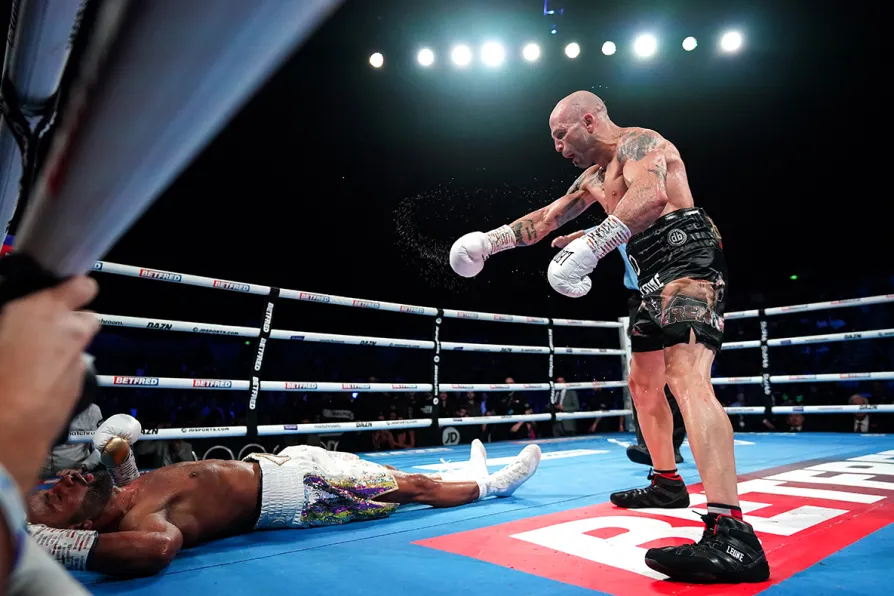From Wearside streets to rings worldwide, the boxer’s journey embodies resilience and the relentless spirit of his city, writes JOHN WIGHT

 DEFEATED: Kid Galahad (left) and Kiko Martinez
DEFEATED: Kid Galahad (left) and Kiko Martinez
WHAT is it about the human condition that tends us to take satisfaction in other people’s failures, misfortune and defeats? The Germans have a word for this particular phenomenon — “schadenfreude” — and it’s a helluva thing.
When Abdul-Bari Awad (Kid Galahad) hit the canvas heavily within seconds of the bell sounding the start of the 6th round of his maiden defence of the IBF featherweight title he won in the summer, such was the level of abuse directed at him on social media you would think that in losing the fight and title so emphatically to Spanish veteran Kiko Martinez, the 31-year-old was guilty of some heinous crime.
A stunned home crowd at the Sheffield Arena, along with the thousands witnessing Galahad’s fate at home, could only ponder once again the vicissitudes of a sport that operates on the basis of searing absolutes — victory, defeat, and nothing in between.












